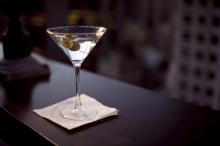I could just eat your little toes!
You know how people are weird around babies and act like they want to squeeze them to death? Yeah, that’s a real phenomenon that goes by the name “cute aggression.” It’s a neural response to adorable stimuli that makes us want to hug and pinch and even bite cute things – baby animals included. A researcher from the University of California, Riverside, took a look at why we do this weird, weird thing.
Using electrophysiology, Katherine Stavropoulos determined that the brain’s reward system plays an integral part in our inexplicable urge to nibble on babies and puppies. She hypothesizes that this may be an evolutionary adaptation, as a way of tempering the feelings of being positively overwhelmed by cuteness. Instead of becoming wholly incapacitated by the sight of your own progeny, your brain responds with some light aggression to snap you out of it and spur you to continue to provide for your young. Reason #12,849 that the human mind is one of the most bizarre things in this universe.
Shaken, not stirred
“No, Mr. Bond, I expect you to imbibe.” A new study published in the Medical Journal of Australia has taken a close look at James Bond’s drinking habits over the past 60 years. Unsurprisingly, researchers reported that 007 “has drunk heavily and consistently across 6 decades.” At least he’s consistent.
Study authors estimated that the secret agent’s peak blood alcohol content reached 0.36 g/dL, high enough to kill some people. Maybe weaker men perhaps, but not our Bond. His postdrinking activities include “fights, driving vehicles, gambling, sex, athletic extremes, and operating complex machinery, or devices.” He’s very good at multitasking. Researchers concluded that Bond has a severe drinking problem, according to DSM-5 criteria for alcohol use disorder. They recommend he seek professional help, and they also suggest that MI6 could be a more responsible employer by offering services for his drinking problem and likely PTSD.
“Home Alone,” with life-threatening injuries
The cinematic holiday hit “Home Alone” features an intrepid 8-year-old left alone to defend his house from the depredations of the two notorious Wet Bandits. While some say “intrepid,” others say “sadistic.” Young Kevin McCallister visits a veritable Spanish Inquisition’s worth of torments upon the iniquitous heads, torsos, and extremities of the larcenous duo: BB gunshots, falling steam irons, paint cans to the brain bucket, and everyone’s favorite theft deterrent, the old blowtorch-to-the-scalp routine.
The slapstick Wet Bandits survived their ordeal to burgle again in an equally painful sequel. But would Marv and Harry’s on-screen survival be possible in the world of real-life Sherman-Williams cans? Dr. Ryan St. Clair of the Weill Cornell Medical College in New York examined their celluloid injuries and offered some real-world diagnoses.
Close-range BB gunshots to the head and groin? They’d break the skin, sure. But the Wet Bandits’ skulls and scrotums would likely remain intact. Ah, but what about a steam iron to the face? Marv could expect a “blowout fracture,” leading to serious disfigurement and debilitating double vision. Paint can to the head? Ten pounds of paint can at the end of a 10-foot rope equals a roughly 2-kN blow to the face. Not only are the pair both out cold, they’re probably sporting toothless grins. And that blowtorch to the scalp? Harry’s now the victim of a full-thickness burn likely to cause skull bone necrosis that demands a transplant.
Dr. St. Clair’s expert medical summation? “This movie was way more believable when I was 8.”




